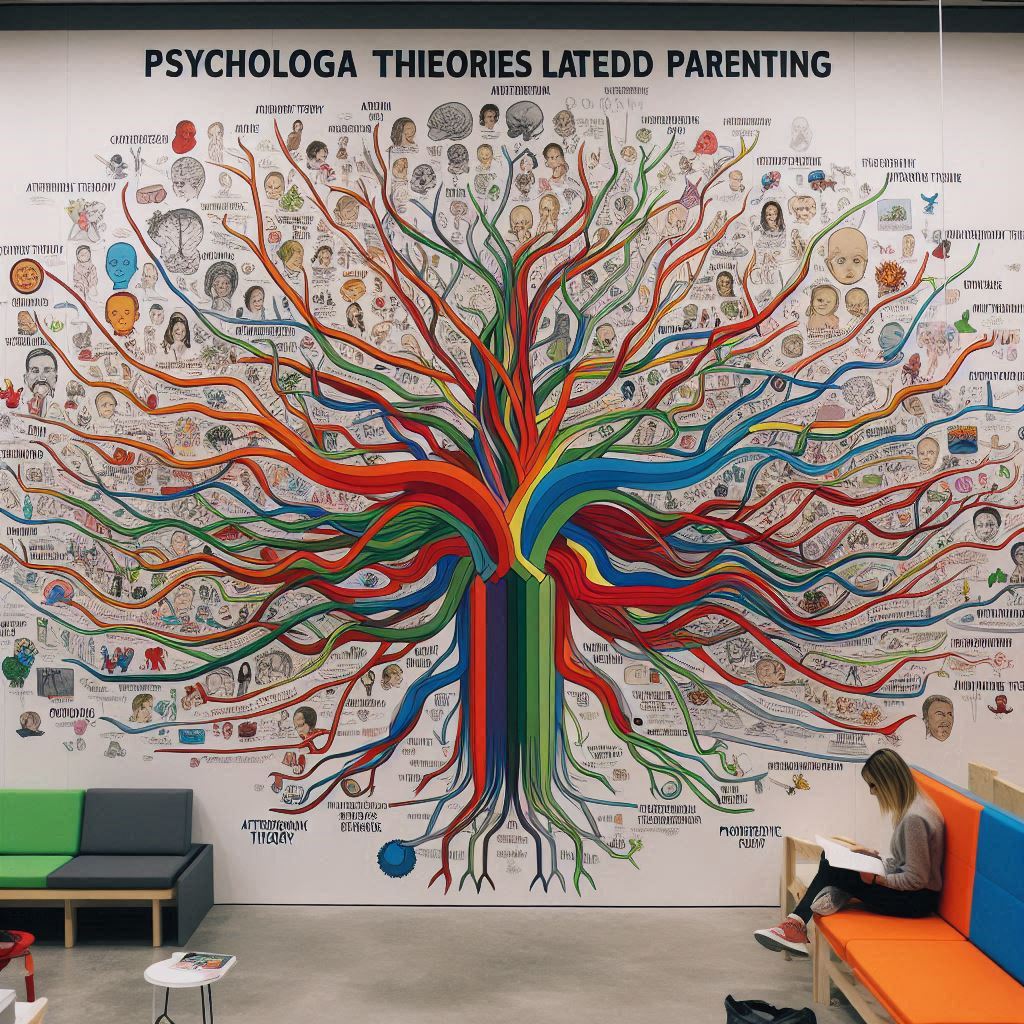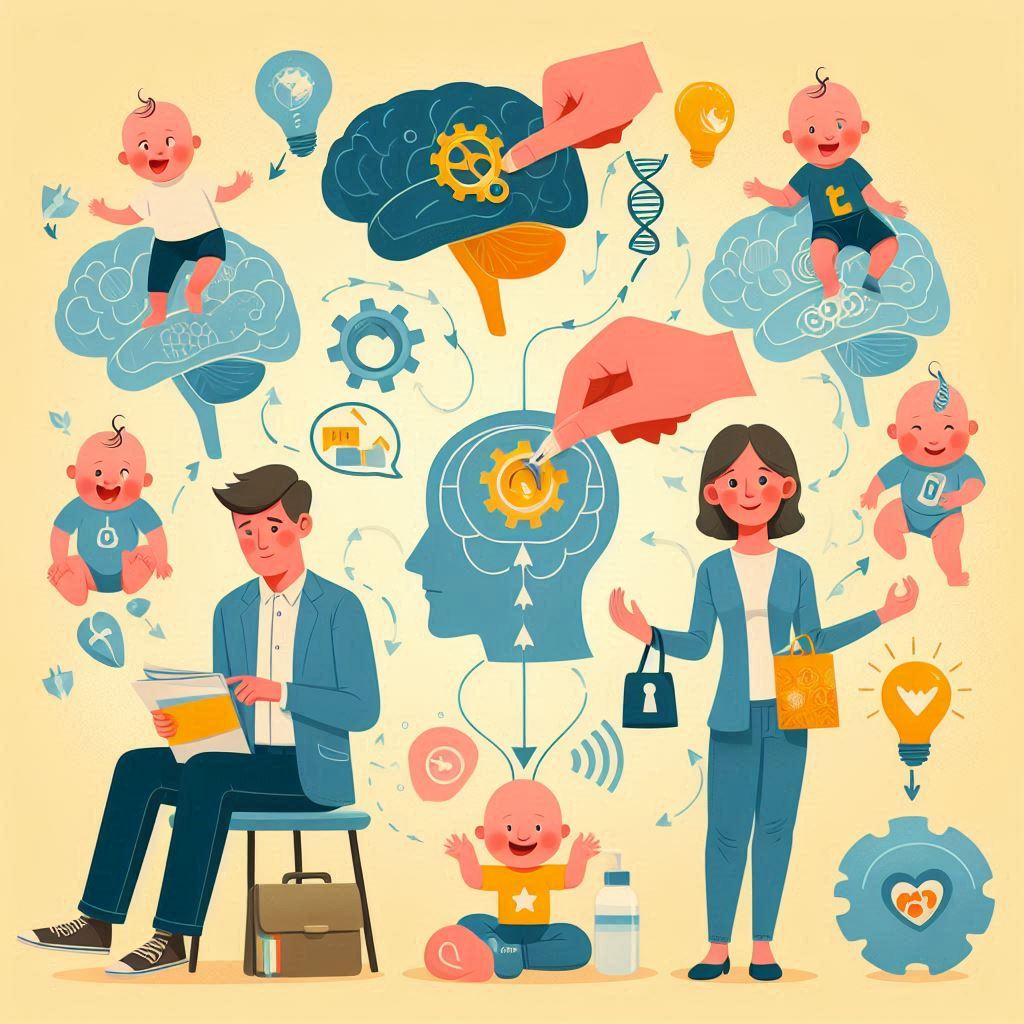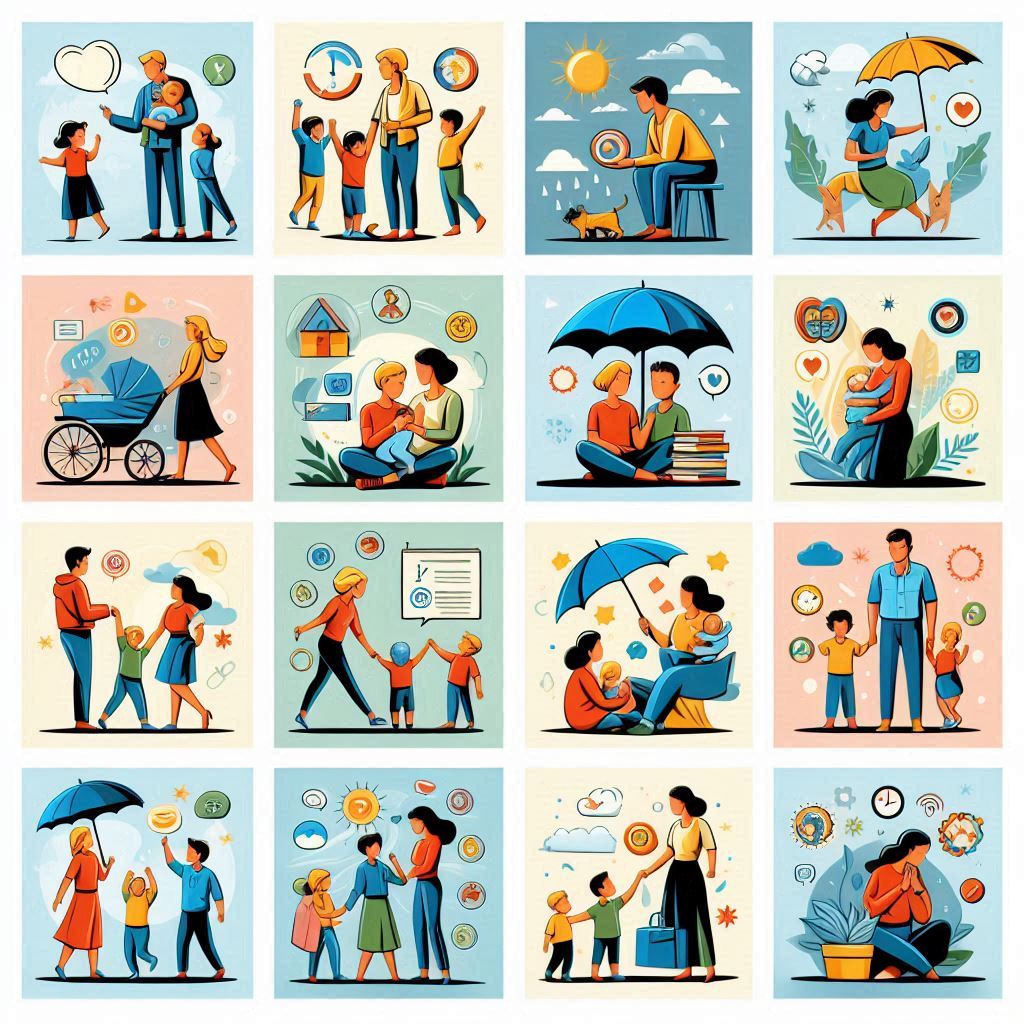Here’s an extended list of key theories and approaches in child development and child-rearing psychology, grouped by their core focus areas. It combines major psychological frameworks and lesser-known ones that also influence child-rearing practices:
Developmental Theories
- Attachment Theory (John Bowlby)
- Stages of Attachment (Mary Ainsworth)
- Psychosocial Development Theory (Erik Erikson)
- Cognitive Development Theory (Jean Piaget)
- Moral Development Theory (Lawrence Kohlberg)
- Ecological Systems Theory (Urie Bronfenbrenner)
- Sociocultural Theory (Lev Vygotsky)
- Theory of Mind Development
- Lifespan Development Theory (Paul Baltes)
- Dynamic Systems Theory (Esther Thelen)
- Core Knowledge Theory
- Information Processing Theory
- Theories of Cognitive Dissonance (Leon Festinger)
- Theory of Multiple Intelligences (Howard Gardner)
- Identity Development Theory (James Marcia)
- Self-Determination Theory (Edward Deci, Richard Ryan)
- Social Constructivism (Jerome Bruner)
- Theory of Social Cognition (Albert Bandura)
- Developmental Niche Theory
- Imprinting Theory (Konrad Lorenz)

Behavioral and Learning Theories
- Classical Conditioning (Ivan Pavlov)
- Operant Conditioning (B.F. Skinner)
- Social Learning Theory (Albert Bandura)
- Behaviorism (John B. Watson)
- Cognitive Behavioral Theory (Aaron Beck)
- Theories of Positive Reinforcement (Skinner)
- Observational Learning (Bandura)
- Theories of Punishment and Discipline
- Response Contingency Theory
- Shaping and Modeling Theory
- Generalization and Discrimination Theory
- Behavioral Contingency Management Theory
Emotional and Psychological Theories
- Emotional Regulation Theory (James Gross)
- Self-Control Theory (Walter Mischel)
- Emotion-Focused Parenting (John Gottman)
- Affect Regulation Theory
- Theories of Grit and Resilience (Angela Duckworth)
- Theory of Emotional Intelligence (Daniel Goleman)
- Core Affect Theory
- Theories of Parent-Child Conflict (Diana Baumrind)
- Co-Regulation Theory
- Social Emotional Learning (SEL) Theory
- Attachment and Trauma Theory
- Emotion Coaching Theory (Gottman)
- Theories of Peer Influence and Emotional Support
Parenting Styles and Practices
- Parenting Styles Theory (Diana Baumrind)
- Authoritative Parenting Theory
- Permissive Parenting Theory
- Authoritarian Parenting Theory
- Neglectful Parenting Theory
- Helicopter Parenting Theory
- Free-Range Parenting Theory
- Gentle Parenting Approach
- Respectful Parenting Theory
- Positive Discipline (Jane Nelsen)
- Attachment Parenting (William Sears)
- Conscious Parenting Theory
- Holistic Parenting Theory
- Parallel Parenting Theory
- Tiger Parenting Theory
- Snowplow Parenting Theory
Educational and Pedagogical Theories
- Montessori Method (Maria Montessori)
- Waldorf Education (Rudolf Steiner)
- Reggio Emilia Approach
- Democratic Education (Alexander Neill)
- Constructivist Learning Theory
- Competency-Based Learning Theory
- Play-Based Learning Theory
- Direct Instruction Model (Engelmann)
- Scaffolding in Education (Bruner)
- Experiential Learning (David Kolb)
- Inquiry-Based Learning
- Cooperative Learning Theory
- Project-Based Learning (John Dewey)
- Zone of Proximal Development (Vygotsky)
- Metacognition and Self-Regulated Learning
Moral, Ethical, and Social Development Theories
- Kohlberg’s Stages of Moral Development
- Carol Gilligan’s Ethics of Care
- Prosocial Behavior Development Theory
- Social Domain Theory (Elliot Turiel)
- Moral Foundations Theory (Jonathan Haidt)
- Social Responsibility Theory
- Theories of Empathy Development
- Virtue Ethics in Child Development
- Altruism and Moral Identity Theories
- Character Education Theory
- Theories of Fairness and Justice Development
- Social Norms Theory
- Group Socialization Theory

Cognitive and Language Development Theories
- Theory of Cognitive Growth (Jean Piaget)
- Cognitive Acceleration through Science Education (CASE)
- Language Acquisition Device (Noam Chomsky)
- Bilingualism and Cognitive Flexibility Theories
- Theory of Narrative Identity
- Symbolic Interactionism
- Psycholinguistic Development Theory
- Theories of Executive Function Development
- Metalinguistic Awareness Development
- Dual Language Development Theories
- Fast Mapping Theory (Carey)
- Emergent Literacy Theory
Psychodynamic and Personality Theories
- Psychoanalytic Theory (Sigmund Freud)
- Psychosexual Development (Freud)
- Ego Development Theory (Erik Erikson)
- Object Relations Theory (Melanie Klein)
- Attachment and Separation-Individuation (Margaret Mahler)
- Jungian Child Development Theory
- Personality Type Theories (Jung, MBTI)
- Trait Theory in Child Development
- Theories of Defense Mechanisms in Children
- Humanistic Psychology (Carl Rogers)
- Self-Actualization Theory (Maslow)
- Core Conflictual Relationship Theme (CCRT) Theory
Theories of Peer Influence and Socialization
- Peer Group Socialization Theory
- Group Socialization Theory (Judith Harris)
- Social Identity Theory (Henri Tajfel)
- Peer Pressure and Conformity Theories
- Social Comparison Theory
- Theories of Friendship Development
- Sibling Rivalry Theory
- Social Integration Theory
- Theories of Status and Popularity in Peer Groups
- Cultural Learning and Socialization Theories
- Theories of Play and Social Interaction
- Group Dynamics Theory
Environmental and Contextual Theories
- Bronfenbrenner’s Ecological Systems Theory
- Social Development Theory (Vygotsky)
- Transactional Model of Development (Sameroff)
- Family Systems Theory (Bowen)
- Theories of Parental Influence on Development
- Developmental Contextualism Theory
- Home Environment and Learning Theory
- Theories of Neighborhood and Community Influence
- Cultural Capital Theory
- Acculturation and Child Development Theories
- Cross-Cultural Theories of Development
- Epigenetic Theories of Development

Health, Well-being, and Risk Theories
- Adverse Childhood Experiences (ACE) Theory
- Theories of Developmental Trauma (van der Kolk)
- Stress and Coping Theory (Lazarus & Folkman)
- Toxic Stress Theory (Shonkoff)
- Resilience Theory (Michael Rutter)
- Holistic Child Health Theories
- Theories of Child Nutrition and Brain Development
- Theories of Physical Activity and Child Development
- Sleep and Brain Development Theories
- Early Childhood Intervention Theory
- Theories of Risk and Protective Factors
- Developmental Psychopathology Theory
- Health Belief Model
- Social Determinants of Health Theory
- Behavioral Genetics Theories
Motivation and Self-Development Theories
- Intrinsic vs. Extrinsic Motivation Theory (Deci & Ryan)
- Theories of Achievement Motivation (Atkinson)
- Expectancy-Value Theory
- Goal-Setting Theory (Locke & Latham)
- Attribution Theory (Weiner)
- Fixed vs. Growth Mindset Theory (Carol Dweck)
- Competence Motivation Theory
- Mastery vs. Performance Orientation
- Theories of Grit and Perseverance (Duckworth)
- Delay of Gratification (Mischel)
- Future Time Perspective Theory
Miscellaneous Theories and Approaches
- Learned Helplessness Theory (Seligman)
- Hope Theory (Snyder)
- Parenting as Leadership Theory
- Theories of Play and Cognitive Development (Piaget)
- Attachment-Based Parenting Models
- Adult-Child Interaction Theories
- Gender Schema Theory (Sandra Bem)
- Self-Efficacy in Parenting (Bandura)
- Constructivist Parenting Approaches
- Reflective Parenting Model
- Child-Centered Parenting Theory
- Parental Involvement Theory
- Guided Participation (Rogoff)
